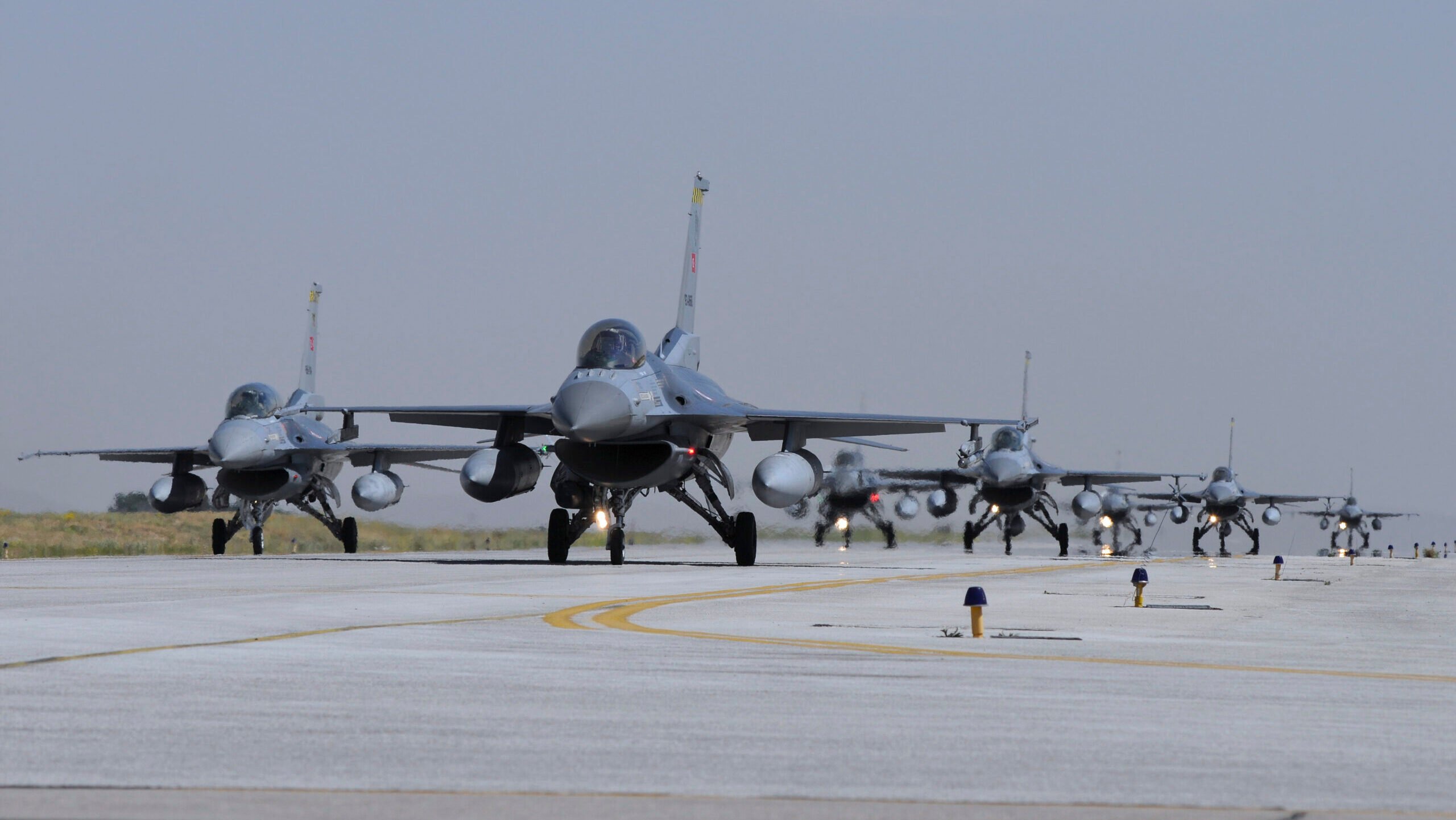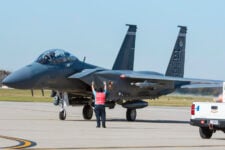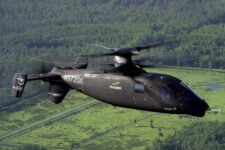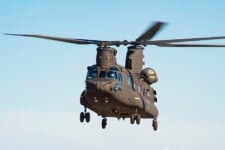
A squadron of Turkish Air Force F-16C and F-16D aircraft taxiing on the runway at Konya Air Base, Turkey. (Getty Images)
WASHINGTON — Days after Turkey’s parliament approved Sweden’s NATO bid, the Biden administration late Friday notified Congress that it is unfreezing a massive deal with Turkey to provide 40 new F-16 fighters and modernize another 79 of the aircraft already in service, an arrangement estimated to be worth a staggering $23 billion.
The approval was announced alongside another approval for Turkey’s regional rival Greece to join the F-35 club, with the potential purchase of 40 F-35 conventional take-off and landing variants for $8.6 billion.
Taken together, the two announcements serve as a conclusion of a major geopolitical tug of war involving all three countries, as well as the hopes of Sweden to join NATO in the wake of Russia’s invasion of Ukraine.
The holdup of Turkey’s F-16s had been a major issue between Ankara and Washington. Turkey’s quest for new and upgraded F-16s goes back years, after it was booted in 2020 from the US-led international F-35 program over Turkey’s purchase of advanced Russian radars. The same year Defense News reported American lawmakers had quietly frozen all major arms sales to Turkey, including F-16 upgrades.
Turkey, some key US senators said at the time, “is not behaving like a responsible actor or working collaboratively with the West at the level we expect from a NATO ally.”
More recently, Turkey had tied the US approval of F-16s to lifting its hold on Sweden’s NATO membership. (Turkey, along with Hungary, had played spoiler in Sweden’s NATO bid for months.) Turkey’s parliament approved Sweden’s accession earlier this week, and President Joe Biden reportedly urged Congress to approve the F-16 deal shortly thereafter.
While the Biden administration had pushed back on any official linkage between the two issues, key members of Congress were more open that no F-16s would be approved until Turkey acted on the NATO question. In a statement Friday, Chairman of the Foreign Relations Committee Ben Cardin said that his “approval of Turkeys’ request to purchase F-16 aircrafts has been contingent on Turkish approval of Sweden’s NATO membership.”
“But make no mistake: this was not a decision I came to lightly,” Cardin said. “While Turkey plays a critical role in the region as a NATO ally, there is an urgent need for improvement on its human rights record, including the unjust imprisonment of journalists and civil society leaders, better cooperation on holding Russia accountable for its invasion of Ukraine, and on lowering the temperature in its rhetoric about the Middle East.”
In its notice, the State Department said Turkey’s new Lockheed Martin-made planes and the modernization effort, along with a laundry list of supporting equipment and other services, “will support the foreign policy goals and national security of the United States by improving the air capabilities and interoperability of a North Atlantic Treaty Organization (NATO) Ally that is a force for political and economic stability in Europe.”
State Department approval for potential sales is not the final word, and lawmakers could still step in to throw a wrench into any potential deals. But as Cardin’s public support suggests, it is unlikely the Biden administration would have made the announcement if they expected resistance in Congress.
Turkey is in the process of developing a domestically manufactured next-generation fighter aircraft, dubbed the KAAN, but analysts told Breaking Defense previously that the KAAN is likely many years away from active service and that Ankara has been eager to fill a “fighter gap” that was expected to widen as its current crop of F-16s aged.
Hellenic F-35s
That Turkey’s fighter clearance was paired with the long-expected approval for Greece’s F-35 purchase is no surprise, given the geopolitical tensions between the two historic rivals.
“The F-35 will offset the increasing obsolescence of other Hellenic Air Force aircraft such as the F-4 and Mirage 2000. Greece will have no difficulty absorbing these articles and services into its armed forces,” the State Department said.
Greece made the formal request for F-35s in June 2022. At the time experts told Breaking Defense the US was likely to approve it, but warned it could strain American relations with Turkey.
“Given the strategic situation in the eastern Mediterranean, a Greek F-35 purchase is inevitable, particularly with the [Hellenic Air Force’s] aging fleet,” Richard Aboulafia, managing director with Aerodynamic Advisory, said then. “Despite economic challenges, Greece has prioritized a high level of defense spending. The only challenge is availability, given the limited F-35 production ramp.”
Nicholas Danforth, senior visiting fellow at the Hellenic Foundation for European and Foreign Policy, said in 2022 that historically, “the United States has placed a huge priority on avoiding conflict between NATO allies in the eastern Mediterranean. In the past, that meant trying to maintain a very balanced position between Greece and Turkey.”
Since 2022 Lockheed Martin has had a webpage dedicated to the potential for Greek F-35s, saying the plane “stands ready as the most capable solution for the Hellenic Air Force.”
Prior to Greece’s inclusion, some 17 nations were involved in the development of the F-35 or have purchased the aircraft.
Australia tops up Ukraine military aid with $100M
Australia has already supplied Ukraine with 120 Bushmaster vehicles, six 155mm howitzers, 56 M113 armored vehicles, 14 special operations vehicles and its signature cardboard drones.


























